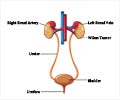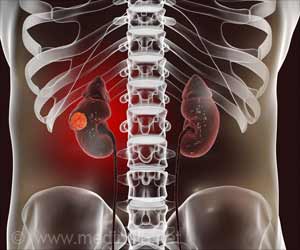Discover the benefits of minimally invasive surgery for kidney cancer, including precise tumor removal, faster recovery, and improved well-being.
- Minimal invasive surgery targets and removes the tumor while preserving healthy kidney tissue, reducing the risk of complications and maintaining kidney function
- With smaller incisions, minimally invasive techniques offer reduced blood loss, faster recovery times, and smaller scars, leading to improved patient outcomes
- The less invasive nature of these procedures contributes to reduced stress and anxiety during the recovery period, promoting overall well-being and a better quality of life
Advancements in Minimal Invasive Surgery for Localized Kidney Cancer
Kidney cancer, also known as renal cell carcinoma, is a type of cancer that originates in the kidneys. When the cancer is detected at an early stage and remains localized within the kidney, surgical removal of the tumor is the primary treatment approach. In the past, open surgery, which involved a large abdominal incision, was the standard procedure for kidney tumor removal. However, this approach often resulted in significant postoperative discomfort, longer recovery periods, and increased risk of complications. With the advent of minimally invasive surgery, specifically laparoscopic or robotic-assisted techniques, the treatment landscape for localized kidney cancer has drastically changed. These techniques involve the use of specialized surgical instruments and a small camera (laparoscope) inserted through small incisions in the abdomen. The surgeon then operates using the images projected on a monitor, allowing for precise tumor removal (1✔ ✔Trusted SourceRecent Advances in the Management of Localized and Locally Advanced Renal Cell Carcinoma: A Narrative Review
Go to source).
Advantages of Minimally Invasive Surgery for Kidney Cancer
One of the main advantages of minimally invasive surgery for kidney cancer is the preservation of healthy kidney tissue. Unlike open surgery, which may require a larger incision and more extensive tissue removal, minimally invasive techniques enable the surgeon to target and remove only the tumor, leaving the rest of the kidney intact. This is particularly beneficial for patients with early-stage kidney cancer, as it helps preserve kidney function and reduces the risk of postoperative complications.Furthermore, minimally invasive surgery offers several benefits for patients, including reduced blood loss during the procedure, smaller scars, and faster recovery times. The small incisions result in less tissue trauma and pain, leading to a quicker recovery compared to traditional open surgery. Patients typically experience less pain and discomfort after surgery and can resume their daily activities more quickly. Additionally, minimally invasive techniques often result in shorter hospital stays, leading to cost savings and improved patient satisfaction.
Laparoscopic and robotic-assisted surgeries have demonstrated excellent outcomes in the treatment of localized kidney cancer. Studies have shown comparable oncological outcomes, including long-term survival rates and cancer recurrence rates, between minimally invasive surgery and open surgery. This evidence further supports the effectiveness and safety of minimally invasive approaches for kidney tumor removal.
Psychological and Technological Advancements of Minimally Invasive Surgery
In addition to its physical benefits, minimally invasive surgery also has psychological benefits for patients. The smaller incisions and reduced postoperative pain contribute to less stress and anxiety during the recovery period, promoting overall well-being and a better quality of life. Moreover, technological advancements in minimally invasive surgery, such as robotic-assisted techniques, have further improved the precision and accuracy of tumor removal. The robotic arms used in these procedures allow for enhanced maneuverability and dexterity, enabling surgeons to perform complex tasks with greater ease. This results in better surgical outcomes and patient satisfaction (2✔ ✔Trusted SourceTechnological advances in minimally invasive surgery
Go to source).
In conclusion, minimally invasive surgery has emerged as a boon for localized kidney cancer. It offers a less invasive and highly effective treatment option for patients, allowing for tumor removal while preserving healthy kidney tissue. With its numerous advantages, including smaller incisions, reduced postoperative pain, faster recovery, and shorter hospital stays, minimally invasive surgery has transformed the management of localized kidney cancer, providing patients with improved outcomes and a better quality of life. Continued advancements in minimally invasive techniques and technology hold promise for further enhancing the treatment of localized kidney cancer and improving patient care.
References:
- Recent Advances in the Management of Localized and Locally Advanced Renal Cell Carcinoma: A Narrative Review - (https://pubmed.ncbi.nlm.nih.gov/36879830/)
- Technological advances in minimally invasive surgery - (https://pubmed.ncbi.nlm.nih.gov/16515381/)
















